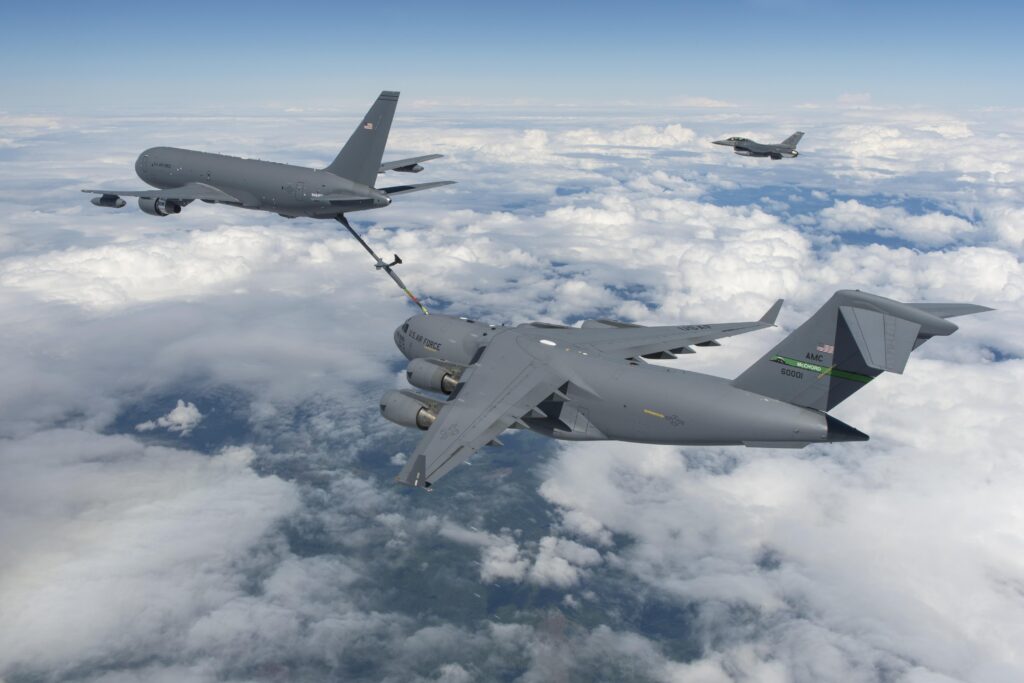Air Force Confirms Late KC-46 Delivery– ‘Late Spring’ Not December
Posted on

KC-46 refuels C-17
UPDATED: ADDS Detailed Boeing Comment On “Being Much More Efficient”
WASHINGTON: Boeing will probably deliver the first of the “low risk” KC-46 airborne tankers at least six months later than planned, the Air Force said this morning.
“The Air Force will continue to support Boeing’s efforts to execute the program, however, the Air Force assessment predicts first aircraft delivery beyond Boeing’s forecast into late Spring of 2018,” says a statement from Capt. Emily Grabowski. There’s clearly some uncertainty about this date: Even though the statements says the Boeing delivery is likely by “late Spring,” it also says the service “expects to have greater confidence on the timeline in July.”
Since “late Spring” lasts until June 21st, the statement strongly implies the Air Force thinks there’s a pretty good chance Boeing won’t deliver the first plane until almost seven months after they were supposed to.
The good news is, that no matter how late Boeing might be and how much that time might cost, US taxpayers will not be affected: The fixed-price contract forces the company to absorb all the additional costs.
The announcement comes at the Air Force and Boeing met to discuss the aircraft at the annual KC-46 Schedule Risk Assessment, held Tuesday while Air Force Secretary Heather Wilson and Chief of Staff Gen. David Goldfein testified before the Senate Armed Services Committee about the KC-46 and other Air Force budget matters. They both testified that a “couple months” delay was likely, while the new statement suggests it could be six.
“The top issues slowing progress are achieving the FAA airworthiness certifications and completing the flight test program,” Grabowski’s release notes. Air Force officials have not blamed the FAA, but there are clear indications that the FAA, infamously slow updating the nation’s air traffic control system, is at least somewhat at fault here.
The Air Force statement says that, “Once Boeing receives the remaining design approvals from the FAA, they expect testing to proceed on a faster pace.” For its part, Boeing still says it plans to deliver the first plane by December 2017. Perhaps the FAA will get moving and Boeing will too?
Boeing believes it will “be much more efficient during the second half of testing now that the design has stabilized,” Caroline Hutcheson spokeswoman says in an email. “The majority of developmental testing is complete, which reduces risk to the certification and verification testing. Additionally, we recently added a 6th aircraft (the second low-rate initial production plane) to the flight test program, which will help with test efficiency and improve our ability to complete ground and flight test points going forward.”
Finally, she says that after 1,700 flight test hours, the company is “not discovering any new technical risk.”
Of course, the aircraft is already late and considerably over budget without any help from the FAA. Boeing made its bid with the reasonable expectation that it would more than recoup any funds lost during the initial stages of the procurement as it later sold and serviced more tankers.
Subscribe to our newsletter
Promotions, new products and sales. Directly to your inbox.
